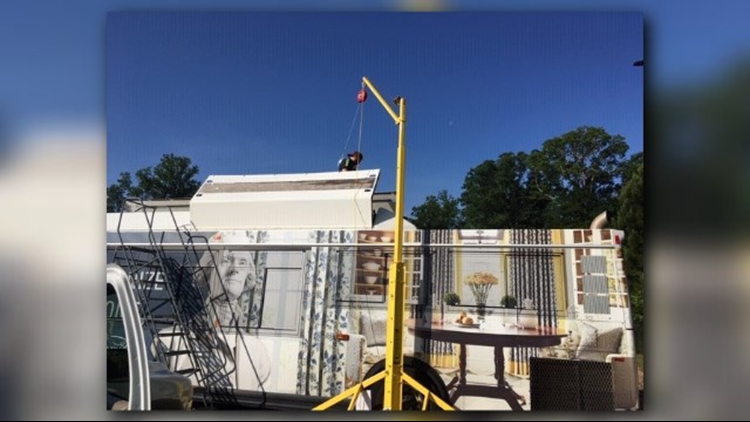Sometimes when a big-ticket item comes up for replacement, it means saving your pennies or finding a creative way to pay for it.
With more than a dozen buses at the end of their lifespan — and the price tag on a new bus exceeding $440,000 — the Williamsburg Area Transportation Authority is getting a little creative.
This year, WATA is working on a new reboot for its 14 natural gas-powered buses used and leased by Colonial Williamsburg, all of which have exceeded their recommended life of at least 12 years.
But because Colonial Williamsburg buses only travel short distances around the Historic Area, they still have some miles left before they hit their recommended mileage lifespan.
So instead of getting rid of the 14 buses and paying nearly $6.29 million, WATA is paying about $774,500 to replace each bus’s seven compressed natural gas tanks, said Barbara Creel, WATA’s Budgets and Grants administrator.
A better way
WATA’s Colonial Williamsburg buses have a total of 98 natural gas tanks to replace.
WATA Executive Director Zach Trogdon said replacing the natural gas tanks instead of the entire bus is a more environmentally-friendly way to handle the aging buses.
“The project is environmentally-responsible since it will not consume the raw materials needed to build new buses right now,” he wrote in an email. “Also, if the old buses were disposed of, some of the materials (non bio-degradable) would be landfilled and that is also being delayed.”
All of the buses are between 13 and 15 years old, Creel said, but only average between 240,000 to 320,000 miles annually all together.
Colonial Williamsburg’s buses are owned and maintained by WATA but are leased by the foundation. They transport the public on specific routes separate from WATA’s other 14 routes.
All of the Colonial Williamsburg’s buses are powered by natural gas, instead of gasoline or diesel fuel.
According to the U.S. Department of Energy, compressed natural gas buses emit “dramatically less” particulate matter than traditional diesel buses.
More updates
WATA is in the process of updating the rest of its fleet, as well.
WATA recently bought six buses to help update the fleet. Now, only one older burgundy and white bus remains on the fleet. The rest are bright red and updated.
The Authority hopes to have the buses in service by the end of August, after it transfers fare boxes, GPS units, cameras, and other equipment from old buses into the new ones.
In 2018, WATA buses traveled more than 1 million miles and gave customers more than 770,000 rides.



